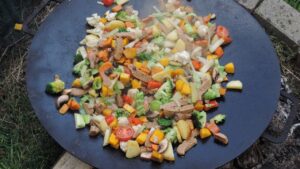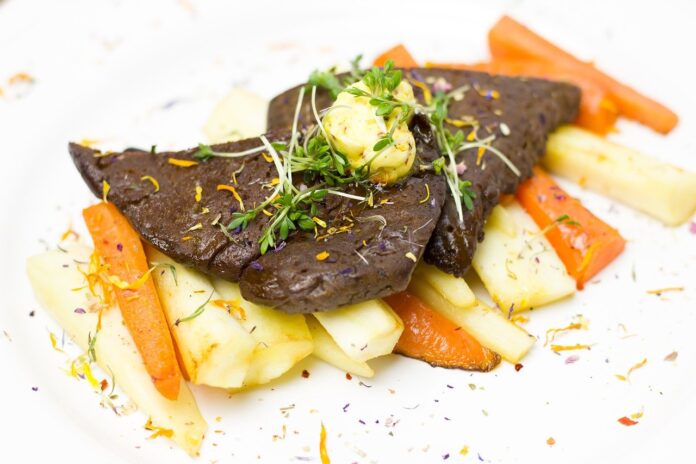Having been around for centuries, Seitan (pronounced as “say-tan”) originated in Japan, where Buddhists used it as a meat substitute due to its texture, which is similar to that of conventional meat. Also known as “wheat meat” or “mock duck”, this rich source of protein is an alternative to soy, and contains low fat and sodium, while also being sugar- and cholesterol-free. About 70 gms of seitan contains over 17 grams of pure protein, and is therefore, a great protein source for vegans and vegetarians.
What is Seitan Made of?
The main ingredient that goes into the making of seitan is hydrated gluten, which is the primary protein found in wheat. The process of making seitan is rather simple. It requires kneading of wheat flour with water to create sticky strands of gluten, and then rinsing the dough to remove any leftover starch. The dough then needs to be cooked by either simmering or steaming.



Nowadays, companies have also started experimenting with seitan, and one can buy from amongst a variety of mock meat options that use it as a main ingredient. Seitan can be used and cooked as a meat substitute in a range of dishes. One can create recipes like seitan kebabs, seitan stew, seitan vegan chilli, seitan tacos, amongst others.
What Does It Taste Like?
While raw seitan has a mild flavour of its own, it can easily absorb others. To give it a different taste, one can cook it in broth or give it a hot and spicy Indian curry twist through rich spices. Depending upon the preparation, seitan can easily take on any flavour, and that is what makes it so versatile. Moreover, when compared with tempeh or tofu, seitan is chewy and stretchy making it a popular meat replacer globally.
Is Seitan Healthy?
With the interest in veganism and plant-based living rising over the last few years, seitan is emerging as a healthy and sought-after meat substitute. Nutritional value of 85 grams serving of seitan:
15 grams of protein
0.5 grams of fat
90 calories
8 grams carbs
2 grams of dietary fibre
40 mg of calcium
1 mg of iron
Rich Source of Protein
As mentioned earlier, seitan has been used as a rich source of protein for centuries. A 100 grams of seitan can give you as much as 75 grams of protein. Since it is made entirely from gluten, it is loaded with protein. The protein in seitan is not complete though. It lacks amino acid lysine that is needed by our body for producing hormones and immune cells. Vegans can take care of this by including lysine-rich foods like beans, pumpkin seeds, and lentils, in their diet.



Alternative to Soy
Those who struggle with soy-related allergies can enjoy healthy and mouth-watering seitan as steaks, burgers patties, stir-fries, kebabs and sandwiches.
Low in Carbohydrates, High in Calcium
Seitan has a low carbohydrate content. A single serving of seitan only has over 4 grams of carbs. It is also almost fat-free. Thus, seitan promotes weight loss in people, while keeping bones healthy. It is a rich source of calcium. A 100 grams of seitan has over 142 mg of calcium. The calcium sourced from seitan boosts bone health and ensures the proper functioning of your heart and muscles.
Gut-Friendly
Often people find digesting meat and dairy products difficult. Being an easy to digest food, seitan is vital for people with digestive disorders or stomach aches. Seitan is easy to digest and can be assimilated easily by people of all ages. The fibre content in seitan aids further in the digestion process.
Who Should Avoid Seitan?
Several studies have shown a relation between gluten and celiac disease. Besides this, many people across the world are allergic to gluten as it causes inflammation and leaky gut. Seitan should therefore not be consumed by such people.


